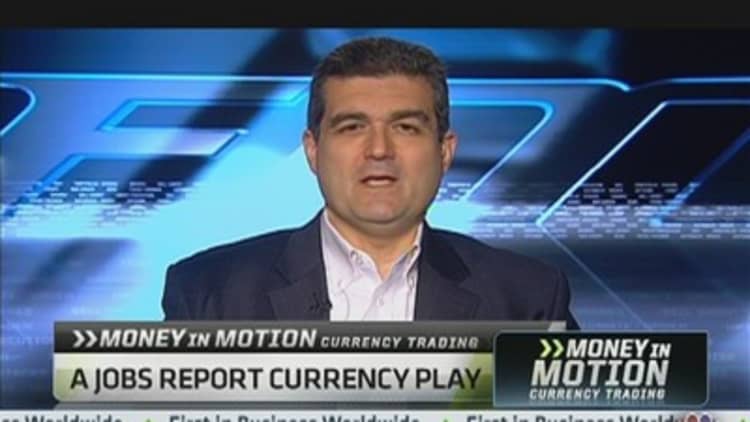Major Currency Pairs
"That's why we've seen things come unwound back to pre-data levels because everybody is going to look ahead and wait for the revisions."
The euro fell to a session low of $1.2878, matching the low set on Nov. 28. It was last trading down 0.3 percent on the day at $1.2924, bringing the weekly decline to 0.5 percent.
Some $5.6 billion of euros changed hands, according to Reuters Dealing. The common currency pared losses in trade before midday, with traders citing a news report that said senior European Central Bank Executive Board members — including President Mario Draghi and Bundesbank President Jens Weidmann — opposed a rate cut supported by the majority at the ECB's most recent policy meeting on Thursday.
"Whether this reduces the likelihood of a cut going forward, the forex market perceives a more hawkish than dovish stance and created significant short covering," said Andrew Wilkinson, chief economic strategist at Miller Tabak & Co. in New York.

Weakness in the euro came as Germany's central bank said it expected Europe's largest economy to grow just 0.4 percent in 2013, and pointed to risks of a recession as the euro zone debt crisis takes its toll.
The euro lost 0.8 percent against the dollar Thursday after ECB President Mario Draghi said policymakers had discussed cutting borrowing costs and slashed growth and inflation forecasts for the euro zone.
ECB policymaker Jozef Makuch also said the bank may cut interest rates next year if the euro zone economy does not improve.
"The euro is still pricing in the earlier-than-expected rate cut talk that came out of yesterday's ECB press conference," said Marc Principato, director of SMB Forex Trading and Education in New York. "If 1.2985 cannot be broken to the upside in the next day or two, I believe a test of the 1.2850 support is more likely in the coming week."
Attention now turns to the Federal Reserve, which begins a two-day meeting on Tuesday. Policymakers are expected to maintain support for the tentative U.S. recovery by ramping up one bond-buying program to offset the expiration of another.
"The real question is whether (the November jobs data) changes the Fed's attitude toward more stimulus. It doesn't remove the need for stimulus but might convince the Fed to opt for a smaller program," said Kathy Lien, managing director of BK Asset Management in New York.
Fed stimulus is viewed as negative for the dollar because it equates to printing money, which lowers U.S. bond yields and diminishes the appeal of holding dollar-denominated assets.
The dollar rallied as high as 82.82 yen on Reuters data, matching a near eight-month high set on Nov. 22. It was last trading at 82.42 yen, near flat on the day.
The yen briefly rose against the euro and dollar after news of an earthquake in Japan. A far more powerful earthquake in March 2011 led to a sharp rise in the yen on expectations Japanese investors would repatriate funds held abroad.
Investors also closely watched developments on the U.S. "fiscal cliff" debate. Republican House Speaker John Boehner accused President Barack Obama of pushing the country toward the "fiscal cliff" on Friday and of wasting another week without progress in the talks.

